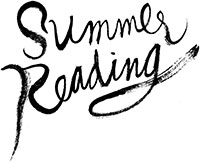Jillian Tamaki
We asked five celebrated writers to devise five guidelines for composing a short story or poem. They all traded lists—and played by the rules.
Five rules
by Michael Lista
- An architectural achievement features in the poem.
- Someone eats a fruit in the poem.
- A kitchen appliance must be used in the poem.
- The first half of the poem and the second half must disagree.
- The last sentence of the poem musn’t end.
Step one: understand the universe.
The trick is to slip into a trance, to stay
in a somnambulant state while smiling.
Do a little soft shoe. Bend your head.
Then excavate the audience for parts.
Get in there and eat their hearts out.
But don’t listen to me. I remember
a time when fame was not particularly
prized, though stages were reserved
for the fearless. It was us against them
back then. Now I don’t know. I want
to go home and study the viscous slick
on the surface of my coffee before I quit.
Take my face paint and hot plate, finish
the dish of small fruits in the freezer.
I’d like it if we could be friends. Friend,
please leave me to gather my gear.
I never believed the show would end—
This appeared in the July/August 2011 issue.






